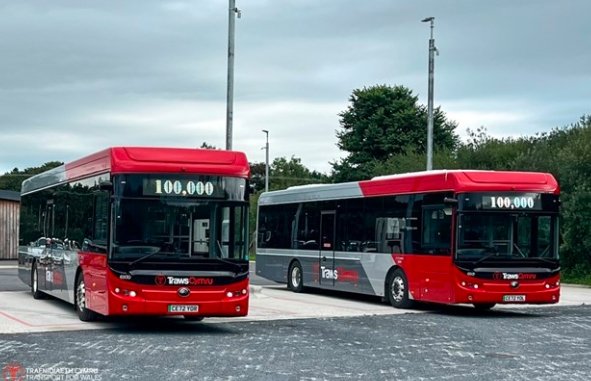CARDIFF – Wales has recorded the slowest recovery in bus usage anywhere in Great Britain since the Covid-19 pandemic, with new data showing passenger numbers are still more than 20% below pre-2020 levels.
A Senedd climate change committee report published this week found that in the 12 months to March 2024, Welsh bus ridership stood at 78.3% of March 2020 levels. That compares unfavourably with England (89.5%), Scotland (92.5%), and Great Britain overall (89.5%).
The slump has been attributed primarily to a sharp drop in older people using concessionary bus passes, with some opting for online services over public transport.
“Wales’ historically high proportion of older bus users means the pandemic hit us harder,” said James Price, chief executive of Transport for Wales (TFW). “We need to rebuild confidence in the network.”
Behind the numbers: Concessions, age gaps, and policy differences
The data highlight a structural challenge in Welsh transport policy: while Wales has long offered free bus travel for over-60s, many of these riders have not returned post-Covid. In England, by contrast, bus passes are issued only at state pension age, creating a smaller eligible base.
Meanwhile, Scotland’s free travel policy for under-22s, combined with broader fare caps in England—£3 max fare introduced in December 2024—may be helping boost ridership across borders.
Ken Skates, the Welsh Cabinet Secretary for Transport, acknowledged the gap but pointed to growing numbers on services like TrawsCymru as signs of potential turnaround.
“We are seeing real change,” Skates said, citing over 80% of North Wales Main Line journeys now using new rolling stock and planned upgrades under the South Wales Metro initiative.

Public control, private doubts
The findings come as Wales prepares to bring bus services back under public control, a major shake-up designed to let officials reshape and integrate the network more strategically.
Mr Price told the committee the reforms—outlined in the recently announced Bus Bill—could usher in a “period of sustained passenger growth,” if they deliver on goals like reliability, accessibility, and simpler service planning.
Still, questions remain over whether performance gaps and capacity issues, particularly on the rail side, could undermine public trust.
Performance woes: Rolling stock bottlenecks
The report also flagged concerns about rail performance, noting that despite “significant improvements” between April and June 2024, services have since plateaued or declined.
TFW has blamed rolling stock delays—notably from Spanish train manufacturer CAF—for ongoing issues.
“We are roughly four units short per day,” Price admitted during an evidence session. “This can lead to short-formed services—fewer carriages than needed—which directly impacts reliability.”
The committee urged TFW to explore all contractual options, including escalation to the Transport Secretary, to ensure train delivery commitments are met.
Integrated transport: The long-term vision
TFW says more than 50% of its new trains are already in operation, and the final phase of the South Wales Metro is nearing completion.
Officials believe that public control of buses, combined with ongoing investments in rail, will create a joined-up, multimodal system to better serve communities across Wales.
But until older riders return and services stabilise, ministers face a delicate balancing act—investing for growth while closing confidence gaps.


















